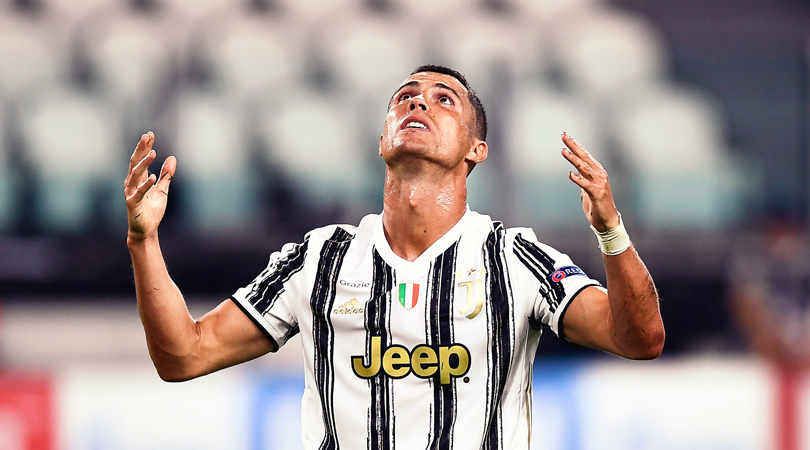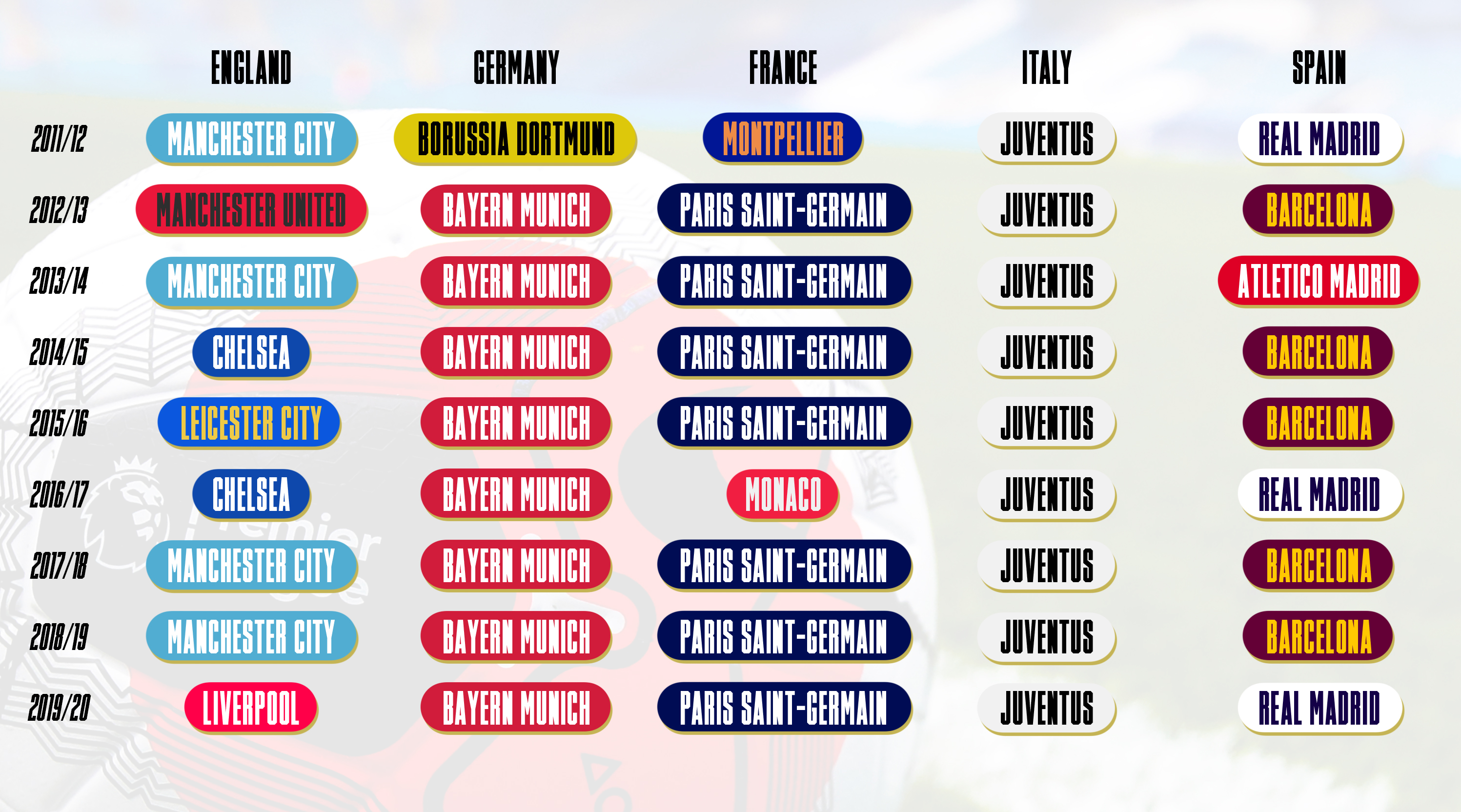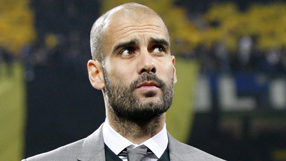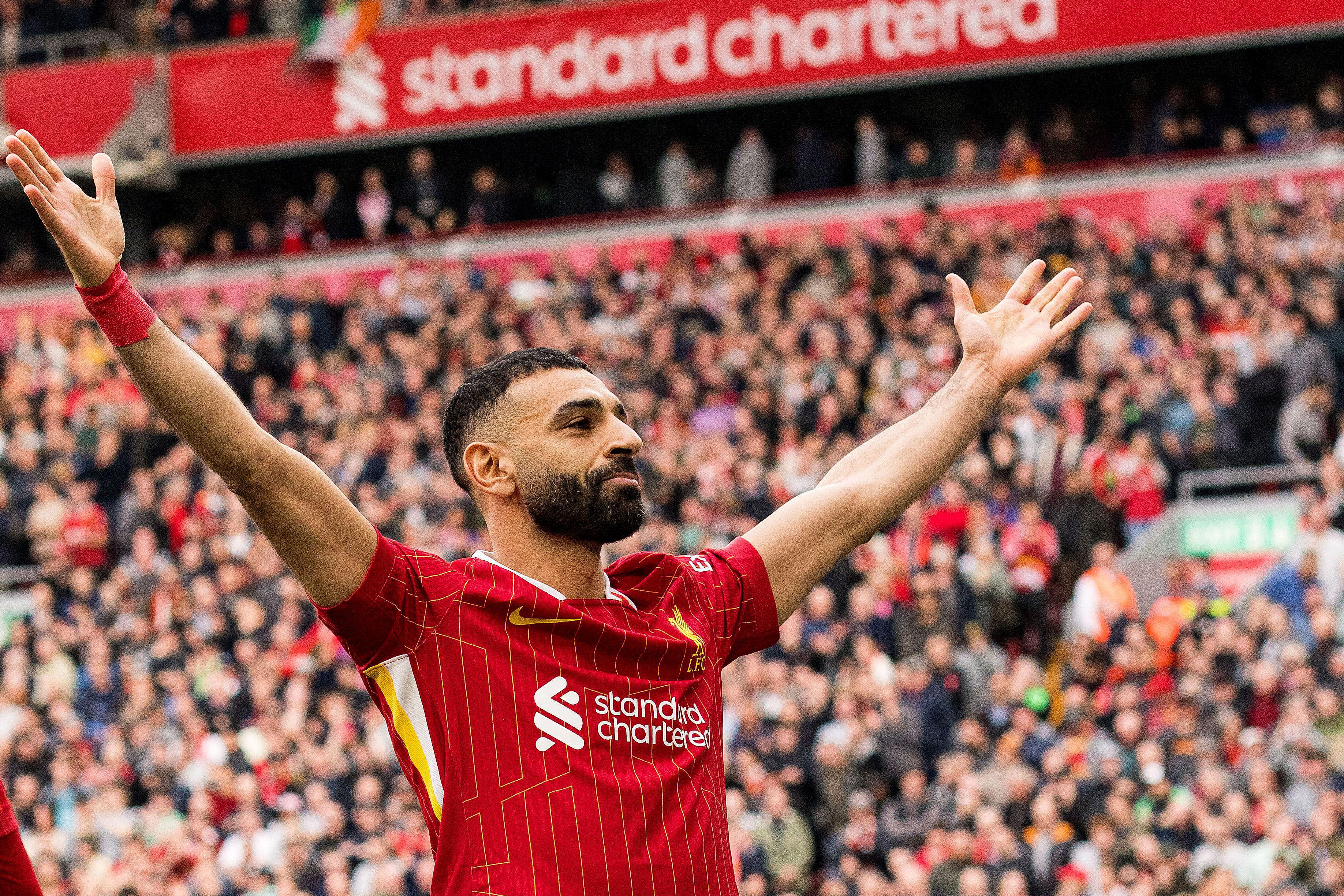Europe’s leagues have never been so predictable – but the solutions might be worse
Juventus, Bayern Munich, PSG and the Clasico sides dominate their own leagues, while the Champions League is as competitive as it has ever been. How do we fix European football?

Last month, Juventus sealed their ninth straight Serie A title. Bayern Munich have won eight Bundesligas in a row. Barcelona and Real Madrid have shared 15 of the last 16 La Liga titles between them. PSG have seven of the last eight in Ligue 1.
The Premier League, by comparison, is increasingly a haven of free competition: the last 10 years have seen five different clubs finish top, the same number the 20 years previous had managed.
But even here, it’s not hard to see another trend. The lowest points total of the last four winners is 93 – a dizzying height only previously reached once in the Premier League era. Now, it seems to be becoming the norm: the best are getting better. Or, at least, a lot better than everyone else.
Is football becoming less competitive? Let’s look at the historic comparisons.

In Serie A, the previous uninterrupted stretch of titles was five, achieved by Inter Milan in the 2000s, Juve in the 1930s and Torino either side of the Second World War in the 1940s. Consider this, to put into context how great the Old Lady’s recent dominance has been: the last time Manchester United won the Premier League, Juventus’ current streak had already begun.
Bayern Munich have been a force in German football since the late 1960s, but even by their own standards, eight is something else: their previous best was a meagre three (1972-74 and 1999-2001), a record shared by Borussia Monchengladbach (1975-77).
PSG are currently only on three in a row, thanks to a Radamel Falcao and Kylian Mbappe-powered Monaco winning the title in 2017. The record for most consecutive Ligue 1 championships actually comes from Lyon, who collected all seven of their titles in a row between 2002 and 2008.
Get FourFourTwo Newsletter
The best features, fun and footballing quizzes, straight to your inbox every week.
While the Parisians are still a way off, another league title next season would hand them the record for the most won in any 10-year period since the league’s formation in 1932.
La Liga is slightly more difficult to judge, as Real Madrid and Barcelona have essentially had a duopoly running since the 1940s. The longest stint Spain has ever seen without either of them winning since the war is five years in the 1980s, when Athletic Bilbao and Real Sociedad both won back-to-back titles.
Even with that kind of history, though, the last 15 years stands out for its Clasico dominance.

EUROPE Is Pep Guardiola holding Manchester City back in the Champions League?
That all of these periods have come simultaneously means that we can pretty safely say there has never been a time when we’ve had less competition in Europe’s top leagues.
All across the continent, then, who can save us from this inevitability?
The worry should be that the ‘saviour’ will not have a palatable solution. The Champions League is the obvious haven for competitive elite football. But this trend of domestic dominance will only boost the semi-regular behind-the-scenes discussions of a European Super League.
We already know that Champions League reforms have been discussed to increase the number of games teams will play, and introduce some sort of relegation and promotion – in effect, ringfencing the clubs involved.
FROM 2019 What you NEED to know about the possible Champions League reforms
While the richest sides in each country continue to assert their dominance, they will increasingly struggle to find significant income from their domestic leagues. And if multiple clubs find a greater financial incentive from the more competitive European matches, it only makes sense that they would want to make the most of it: there should be no surprise that it is the owners of Juventus and PSG who are most regularly linked with supporting Champions League ‘reforms’.
Competitive football in Europe is at it’s lowest ebb. But the only solution could be worse than what we have.
Of course, maybe we won’t need saving. England’s open season on the Premier League title came about because a once-dominant club went through a period of change and left a vacuum.
In Spain, Barcelona look in bad shape, and Real Madrid clearly need some renewal. In Germany, Borussia Dortmund and RB Leipzig have both established themselves in Europe and have been pushing Bayern close domestically. In Italy, Inter already look like potential champions, and in France, PSG’s oil-rich empire could feasibly crumble as quickly as it began.
It’s something to hope for in 2020/21, at least.
While you’re here, why not subscribe to the mag - get your first five issues for just £5, almost £25 cheaper than buying it in the shops!
NOW READ...
BARCELONA How did Barcelona's academy lead to a club in crisis? The inside story of the death of La Masia
RONALDO AT INTER The UEFA Cup, the goals and the injuries – the full story of his time in Italy
GUIDE Premier League live stream best VPN: how to watch every game from anywhere in the world

Conor Pope is the former Online Editor of FourFourTwo, overseeing all digital content. He plays football regularly, and has a large, discerning and ever-growing collection of football shirts from around the world.
He supports Blackburn Rovers and holds a season ticket with south London non-league side Dulwich Hamlet. His main football passions include Tugay, the San Siro and only using a winter ball when it snows.
